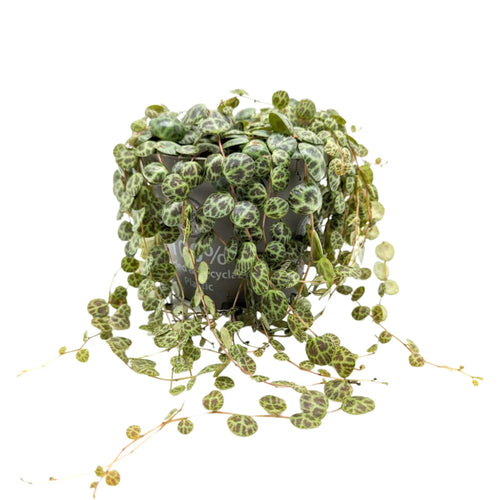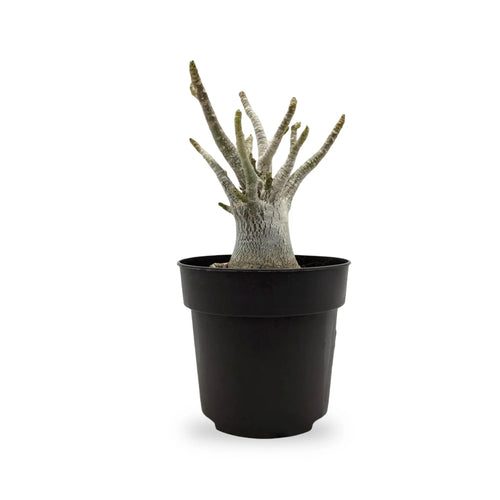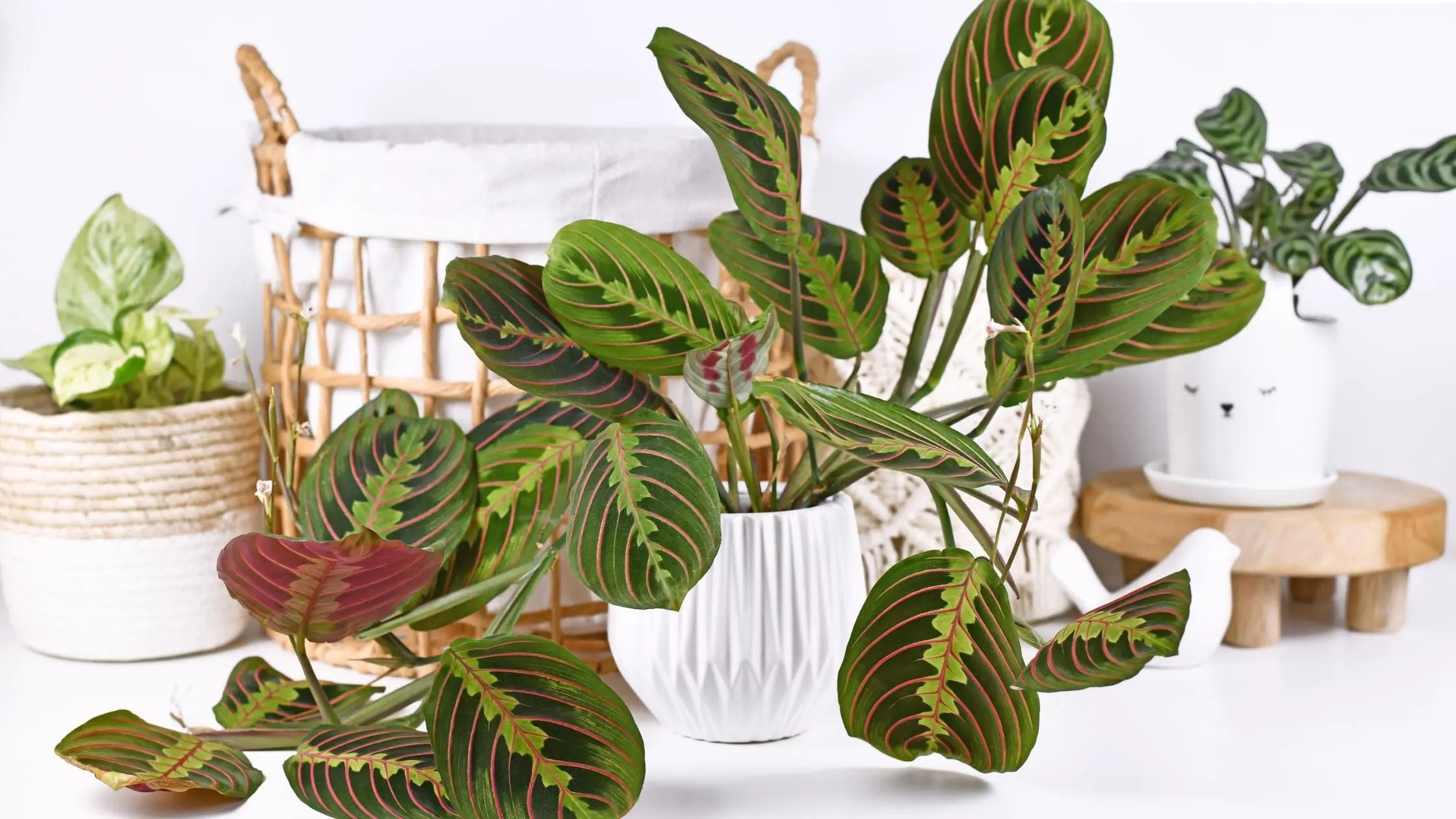When it comes to home plants in the UK, multiple species could harm pets immensely. Despite their beauty and freshness improving interior environments, certain plants are poisonous to animals and can cause major medical problems if consumed. Pet owners that seek safe surroundings for their furry friends must first know which plants to avoid. This blog lists ten plants that should be avoided if you have pets at home. Understanding these hazards can allow you to make wise decisions for a house fit for your furry friend.
Sago Palm
The Sago Palm is a common but potentially dangerous plant for dogs. This plant's leaves and roots all contain cycasin. It is a chemical which can cause serious liver damage if consumed by pets. Poisoning symptoms may include vomiting and diarrhoea. In rare instances, there can be liver failure or death. Sago palms are commonly used as attractive houseplants, hanging or potted. However, pet owners must use caution. Even minor contact can be harmful to pets. If you have a Sago Palm and a dog, you must keep the plant out of reach or better remove it completely from your house.
Aloe Vera
Aloe Vera is famous for its medical benefits and is frequently used in homes as a decorative or hanging home plant. Despite being useful to people, it carries a significant risk to canines. Aloe includes saponins and anthraquinones which can cause serious stomach problems in dogs. If ingested, dogs may exhibit lethargy and even shakiness. The plant's nectar is very hazardous, and being around it should be avoided. If you're thinking of adding Aloe Vera to your houseplant hanging collection, keep it out of your dog's reach to prevent unintentional consumption.
Dieffenbachia
Dieffenbachia is often known as Dumb Cane. It is a popular houseplant due to its beautiful leaves. However, it is risky for dogs. The plant contains insoluble calcium oxides. It can cause severe oral irritation, trouble swallowing, and pain. More severe instances might cause throat swelling and trouble breathing. This plant is commonly seen in houses, either in pots or as houseplants hung from ceilings. This makes it more visible to pets. For houses with dogs, it is best to avoid this plant or keep it well out of reach.
Philodendron
Philodendrons are popular decorative houseplants for hanging or placing in corners of the home. However, they are harmful to your dogs. The plant can be the cause of irritation in the throat and stomach. Dogs may develop symptoms such as mouth pawing and trouble swallowing. While Philodendrons are simple to care for, they carry a major risk to your dog's health. Pet owners should select non-toxic plants or keep Philodendrons in locations that pets cannot reach, such as high shelves or behind barriers.
Oleander
Oleander is a lovely but poisonous plant that should be kept away from canines. All areas of this plant contain harmful substances that can cause major heart issues in dogs. Even small levels of intake can be toxic. Symptoms include vomiting, diarrhoea, drooling, and lethargy, followed by more serious indications such as heart failure. Oleanders are sometimes kept as houseplants in attractive pots, but they are too risky for dogs in households. It is important to keep Oleander away from your pets for their own safety.
Pothos
Pothos are a durable houseplant that frequently hangs on racks or roofs. However, if dogs consume it, they may have oral discomfort due to the presence of insoluble calcium oxides. The plant's hanging branches make it easily accessible to curious pets when utilised as houseplants hanging in low places. Pothos poisoning causes pawing at the mouth and vomiting. Despite Pothos being an excellent easy to maintain plant for the house, dog owners should either avoid it or keep it out of reach to prevent accidental eating.
Snake Plant
Snake Plants are popular because of their architectural design and low maintenance requirements. They are commonly found in homes as houseplants. However, they contain saponins which are harmful to dogs. Ingesting Snake Plants can cause nausea and diarrhoea. But these symptoms are usually not serious, they can be unpleasant and stressful for your dog. Pet owners should install Snake Plants in locations unreachable to dogs or choose pet-safe options. If you enjoy having these in your home, be sure they are non-toxic.
Tulips
Tulips are frequently found in houses as pots or hanging houseplants. Unfortunately, tulip bulbs contain toxins which can be toxic to dogs. If eaten, they may trigger gastrointestinal discomfort. The bulbs contain the most poisons, but the stems and leaves also offer a risk. Tulips' brilliant colours attract observant pets, so keep them out of reach. If you appreciate having flowering houseplants in your home, explore safer options to safeguard your dogs.
Cyclamen
Cyclamen is a growing plant that offers an explosion of colour to any environment. It is commonly used as beautiful houseplants. However, it is extremely harmful to dogs. If consumed, the plant may result in severe vomiting and diarrhoea. Ingesting significant amounts of Cyclamen can result in more severe symptoms such as heart abnormalities. Cyclamen is not suggested for use in households with pets because of the danger.
Peace Lily
Peace Lilies are popular because of their lovely look and air-purifying properties. They are usually found in homes as houseplants hanging or placed in decorative boxes. But they contain substances that can be toxic to dogs. The symptoms of Peace Lily poisoning include mouth discomfort and trouble swallowing. This plant can cause substantial discomfort to your dog. If you enjoy having houseplants in your home area, try using safer plants.








